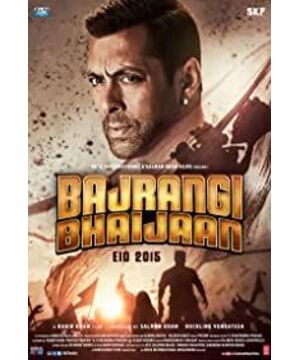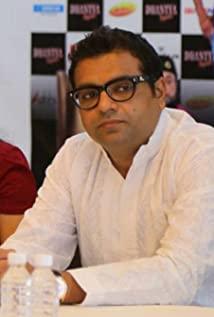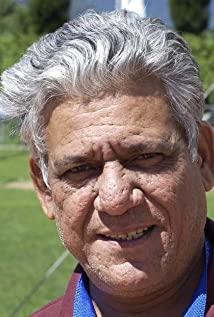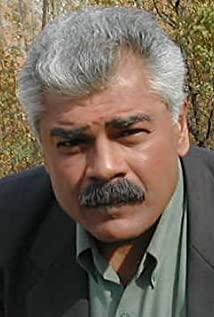First, the foolishness, integrity, and simplicity of the male protagonist seem to be one of the standard features of Indian movies. The most prominent ones are Aamir Khan's "PK" ("Alien Drunkard Earth God") and Uncle Monkey God, PK seems to have no common sense because he knows nothing about the earth, and his expression is weird and stupid; Uncle Monkey God Then he passed the high school exam 20 times in a row, never told a lie along the way, and was extremely stubborn. Although Kanji, the male protagonist of "Oddly God", is a small middle-class businessman, he has to sue their gods because he can't get insurance compensation for earthquake losses. Silly stubborn and imaginative about everything - the senior who electrocuted the pee, demonstrated the machine with his trousers zipper in class, and did not deviate from the title "Three Silly". This kind of personality setting makes it difficult for the movie to show the complexity of human nature, and it also makes the plot have to go straight to the goal. After watching too much, you can guess the plot development. After Uncle Monkey God said that he had to get permission to cross the border, he could guess that he would not escape; later, every time he faced questions, no matter how the little girl hinted, he could guess that he must answer honestly...
Second, TV or the Internet often It is the main clue of the movie and an important tool for turning over. The heroine in PK is the host. She persuaded the producer to help PK appear on TV, and then quickly became popular, forming a strong public opinion pressure on traditional religious figures, and finally won the victory with the support of the public and TV; "Li Kanji changed the public's impression of him through TV interviews, quickly became a star, and won a lawsuit; "Slumdog Millionaire" directly centers on TV interviews; mysterious superstars are upgraded to live webcasts, but this is nothing essential Differences, rapid popularity, reversal of plots, and achievement of goals are all functions of TV or the Internet. So when the reporter in Uncle Monkey God appeared, I had a premonition that he and the TV would make the protagonist become popular again quickly, and become an important promoter of gaining public support and reversing the plot. This conjecture was basically confirmed when the reporter uploaded the video. There isn't much to expect from this movie.
Third, the blessing of good people along the way is a must-have partner for silly male protagonists. No matter how he is chased and beaten in "PK", he is a little strong who can't be beaten to death, but the chase is just an episode. Good people are the main supporting characters. At first, the elder brother in the village took him in and took him to learn Indian language in a brothel, and met a woman in Delhi. The help of the host and the producer keeps escalating until they become famous; in addition to the father among the mysterious superstars, the girl's mother, classmates, TV stars, and feminists are all kind people who want to help others realize their dreams, when the girl goes to Delhi alone At times I was worried, but I didn't expect it to go well. So Uncle Monkey God decided to cross the border to Pakistan, and guessed that he would meet many good people again, but he did not expect that everyone from the border guards to reporters, car conductors, and imams were so simple and kind that they quickly decided to help him without much explanation. The conductor even just listened to a short introduction and directly said, "It would be great if there were more people like that in the two countries." The public was easily moved by his loving actions, and the grassroots police leaders even disobeyed and helped him. It went well. Therefore, when you hear the conductor's words and look at the reporter's expression, you can guess that the reporter will change from mistaking him as a spy to someone who helps him, and the police's pursuit will be resolved by the helper. Even so, the police's incompetence and cracking of the pursuit It was easier than I expected.
Fourth, appealing to the people is a common way to change the protagonist's situation. In conjunction with the previous TV and Internet bridges, various issues in Indian films always like to directly appeal to the people, and fight against a powerful force by winning the support of the people, and those powerful forces are not difficult to be easily dismissed in front of the people. Defeat, I don't know if this is the embodiment of their populism. PK refuted the religious leaders in public to win popular support, and then people from all over the country questioned the religious leaders on TV, embarrassing them, losing believers, and damaging their income; after Kanji received support, religious people came under intense pressure. After Uncle Monkey God got the support of the people, the police chief still wanted to extract a confession. I guess that appealing to the people would definitely become a way to defeat the evil forces again, but it went well beyond expectations, because the grassroots police decided to help, and the people only needed to push to the fence. .
In addition to these common bridges, many specific plots are often similar, as if there are templates. For example, when love comes, the male and female protagonists often go shopping together, glance sideways, and look at each other. "PK" begins with the acquaintance of the heroine and her boyfriend, and later PK's admiration for the heroine; the uncle of the monkey god went to the heroine's house and the relationship between the two began, and then it was the routine of shopping, no confession, no love, and I don't know why. To the Monkey God, he refused to propose a marriage and insisted on helping him send the little girl. Another example is that in line with the protagonist's fame on TV or the Internet, many audiences in front of TV discuss and applaud the protagonist, from "PK", "Oudi God" to Uncle Monkey God. It seems that the Spring Festival Gala will inevitably be broadcast. Like a congratulatory message. There are also hugs at the end, usually accompanied by the climax of the music, running and hugging excitedly, and using slow motion to make the moment more moving, the father who opened the room at the end of "Wrestling" ran over and hugged his two daughters , The mysterious superstar little girl dropped the microphone and ran to hug her mother after speaking. When the little loli hadn't walked out of the crowd and the Uncle Monkey God had already crossed the stream, I thought this bridge would not be repeated. Who would have thought that the Monkey God heard the shout and returned to embrace in the stream...
In recent years, people have widely praised India Movies dare to face, expose, and criticize social issues. At first, I also thought so. After watching a few more films, I will find that the swarms are all similar to the theme, and the exposure and criticism lack depth. However, because religious conflicts and gender discrimination are less prominent and less attention in China, these themes appear new; on the other hand, domestic films that criticize society are more restricted. It rarely appears in movies, so the shallow criticism makes many people feel the large scale of Indian movies.
If you think about it seriously, it is not difficult to find that Indian films depict social problems only superficially, and they are also shallow in criticizing the government. The corruption problem of the Indian government is more serious than that of China, and the efficiency of the government is far lower than that of China. Even in the Transparency International Corruption Perception Index, which is not widely recognized by the Chinese people, India has long lagged behind China (China ranked 79th in 2017 and India ranked 81st); It is far behind China in terms of attractiveness and business environment, not to mention India's unique caste system and ethnic conflicts. The complexity and depth of these issues are probably rare in the world. But in Indian movies, a simple narrative by the protagonist can resolve the religious conflicts that have been ingrained for thousands of years, and realize the reversal of the plot (Monkey God's simple words make Muslims all the way to support Hindus; PK jokes about drinking, Clothing and other issues are superficial appearances of religious issues); the so-called large-scale criticism is to ridicule the inefficiency of civil servants (the sports department in "Wrestling" does not approve funds), and civil servants accept small bribes (the police in PK take several hundred rubles ). Those villain civil servants are also only small evils (the coach in wrestling keeps dad in the gym, the embassy in Uncle Monkey does not grant visas to Pakistan), and their small evils can be easily overcome or defeated (" The viciousness of the police chief in "Uncle Monkey God" was easily resisted by the righteous police chief below, and the crowd rushed up and rushed to the gate). In contrast, although there are not many criticisms of domestic films, the criticism of films with higher evaluations is more profound. For example, "Donkey Gets Water" shows the complexity of human nature in criticizing corrupt officials and deceiving them. Obviously, the connotation is richer than that of Indian films— —Although this film was criticized for being like a drama; the hypocrisy and the helplessness of the real kindness under the moral propaganda in Youth also touched on something deep and thought-provoking. Of course, Indian movies are mainly comedies, and they are not comedies that satirize problems like "Donkey Gets Water" or "Modern Times", so the main function of criticism and satire is to entertain the public and then to expose social problems. Criticism with little depth goes beyond the gist of Indian cinema, making its critical function pale under high expectations.
Films sold in India and introduced to China are also limited in subject matter. Indian issues such as religious conflict and sexism have been repeatedly made articles on, such as "My Name is Khan", "PK", "Oddly God", "Wrestling", "Mysterious Superstar", and the latest "Uncle Monkey God" do not have these two topics. Is there no other theme in India? Relatively speaking, domestic good films have more themes. In the past two years, there have been "Lao Pao" reflecting the culture and chivalrous spirit of the market, "Hundred Birds and Phoenix" reflecting the plight of traditional culture, "Operation Mekong" with the theme of police and bandits, military The theme of "Operation Red Sea" and "Wolf Warrior", the art troupe themed film "Youth" reflecting youth, morality and the changes of the times, and the suspense film "Detective Chinatown", this richness and the writer and director's thinking on society and human nature The depth is above Indian cinema.
Generally speaking, it cannot be denied that Indian films are meticulous and serious in filming and well-made. Excellent films such as "Three Silly", "Wrestling", "Soul Runner" and other excellent films are arranged very smoothly although there are some common scenes, and their creativity , narrative, production, etc. are all excellent. After a while, when the novelty of Indian movies fades away, the old routines and themes may not be able to move people's hearts anymore. At that time, only the real boutiques can win the box office. Indian movies will be put aside for now, unless there is a recognized boutique like Wrestling.
View more about Bajrangi Bhaijaan reviews











